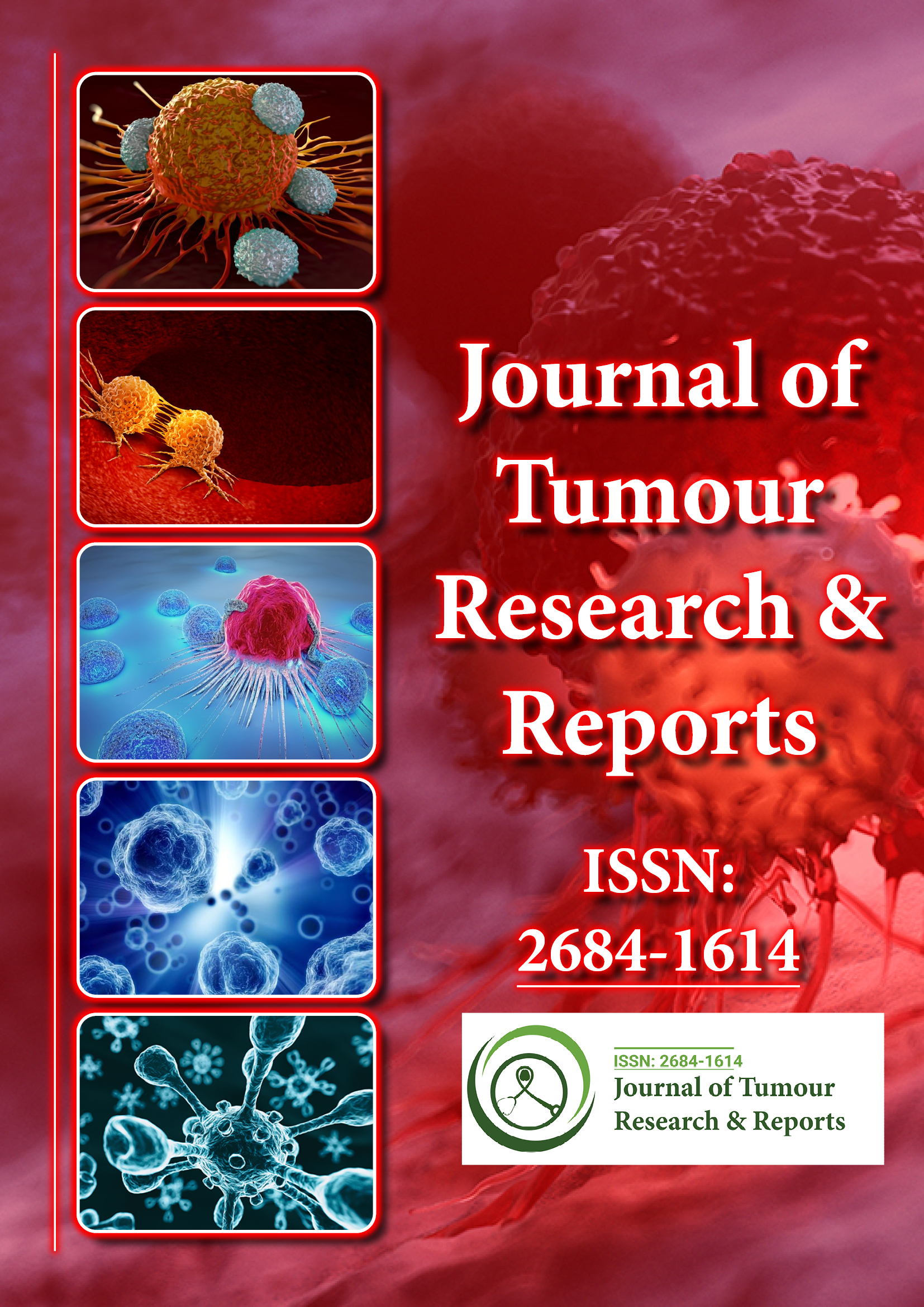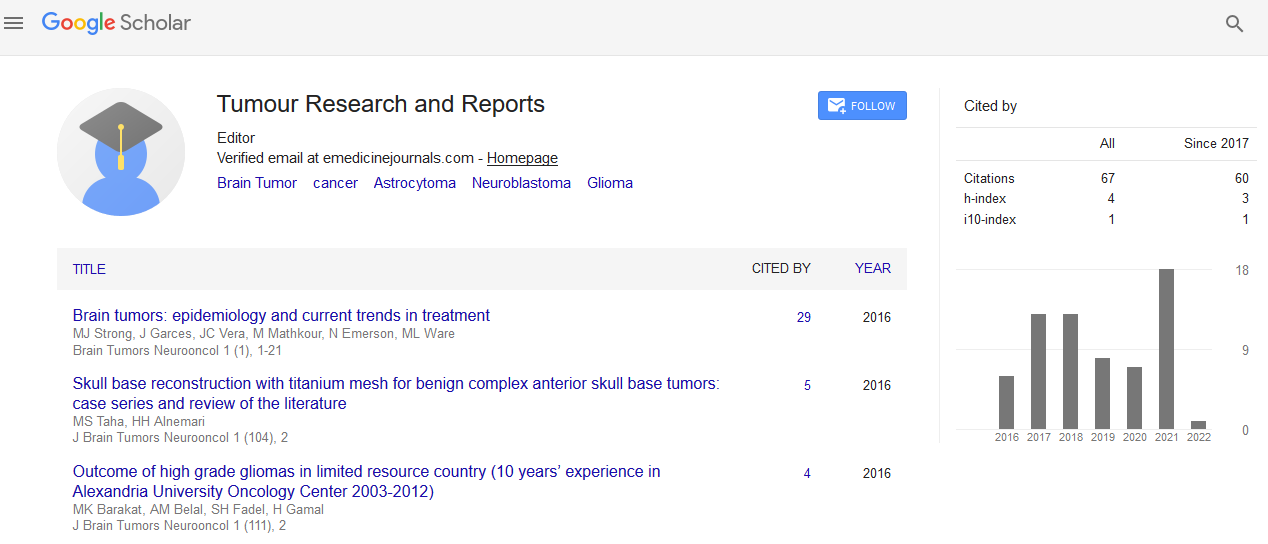Indexed In
- RefSeek
- Hamdard University
- EBSCO A-Z
- Google Scholar
Useful Links
Share This Page
Journal Flyer

Open Access Journals
- Agri and Aquaculture
- Biochemistry
- Bioinformatics & Systems Biology
- Business & Management
- Chemistry
- Clinical Sciences
- Engineering
- Food & Nutrition
- General Science
- Genetics & Molecular Biology
- Immunology & Microbiology
- Medical Sciences
- Neuroscience & Psychology
- Nursing & Health Care
- Pharmaceutical Sciences
Commentary - (2023) Volume 8, Issue 1
Effects of Gut Microbiome towards Metastatic Renal Cell Carcinoma
Eric Henry*Received: 03-Mar-2023, Manuscript No. JTRR-23-20755; Editor assigned: 07-Mar-2023, Pre QC No. JTRR-23-20755 (PQ); Reviewed: 22-Mar-2023, QC No. JTRR-23-20755; Revised: 29-Mar-2023, Manuscript No. JTRR-23-20755 (R); Published: 06-Apr-2023, DOI: 10.35248/2684-1614.23.8.184
Description
Approximately 82,000 new cases of kidney cancer will be diagnosed in 2023, with varying rates of progression to metastatic disease. While treatment options for localized disease have changed little, the treatment landscape for metastatic Renal Cell Carcinoma (mRCC) has advanced significantly. Over the past decades, food and drug administration approvals for this disease have exploded, with multiple Targeted Therapeutics (TTs) and Immune Checkpoint Inhibitors (ICIs) becoming available for this patient population.
Despite many options for mRCC patients using the aforementioned agents as monotherapy or combination therapy, response to these treatments remains heterogeneous, with some patients achieving a Complete Response (CR) and others suffer from Progressive Disease (PD). In addition, her 5-year survival rate for patients at this stage is only 15%.
In recent years, the advent of next-generation sequencing technologies has increased interest in assessing the gut microbiota and its role in cancer. Several studies now suggest that certain types of bacteria may be associated with the development of certain types of cancer, such as lung cancer, melanoma, and colon cancer, as well as therapeutic response to currently available therapies has been shown to have potential.
Within the RCC, efforts are also underway to characterize the role of the gut microbiota. Here, they provide an overview of the role of the gut microbiota in cancer, with a particular focus on RCC. In addition, they highlight ongoing study in this area and discuss the importance of intra-institutional collaboration in creating a robust working framework for future microbiome study.
In addition to these cells, a healthy human body also contains a wide variety of microorganisms, including bacteria, viruses, and fungi, collectively known as the microbiome. It makes up 13 cells, about half of the total number of cells in the body, and has been suggested to be involved in regulating and maintaining human health. These organisms are found in multiple tissues throughout the human body, but in the skin, oral mucosa, and gastrointestinal tract, the latter, especially the large intestine, harbor the highest number of bacteria, outnumbering all other organs by two orders of magnitude. It is well established that the gut microbiota plays essential roles in many physiological functions, including nutrient metabolism and absorption, maintenance of the intestinal barrier, and regulation of the immune system.
Gut microbes endow many of the metabolic capacities necessary to maintain host immune homeostasis, and changes in the composition of the gut microbiota lead to changes in the immune system that contribute to the development of a variety of systemic diseases. It is hypothesized that it may lead to numerous studies have demonstrated associations with a range of inflammatory and autoimmune diseases, particularly inflammatory bowel disease and lupus nephritis, but many compelling intervention studies have demonstrated that microbiota transplantation, which can induce remission in some of these diseases and modulate response to treatment.
Conclusion
By incorporating these new techniques, a key study was able to show that there is a different microbial profile in the gut of cancer patients compared to non-cancer patients. A large body of preclinical and clinical evidence suggests that gut dysbiosis plays an important role in the natural history of many malignancies, including colorectal cancer, hepatocellular carcinoma, melanoma, and breast cancer. Furthermore, the influence of the gut microbiota has been studied in the context of various systemic therapeutic approaches such as chemotherapy, stem cell transplantation and immunotherapy, and has been shown to modulate toxicity and therapeutic response. In particular, great efforts have been made to investigate the association between the gut microbiota and immune-related adverse events.
Citation: Henry E (2023) Effects of Gut Microbiome towards Metastatic Renal Cell Carcinoma. J Tum Res Reports. 8:184.
Copyright: © 2023 Henry E. This is an open-access article distributed under the terms of the Creative Commons Attribution License, which permits unrestricted use, distribution, and reproduction in any medium, provided the original author and source are credited.

